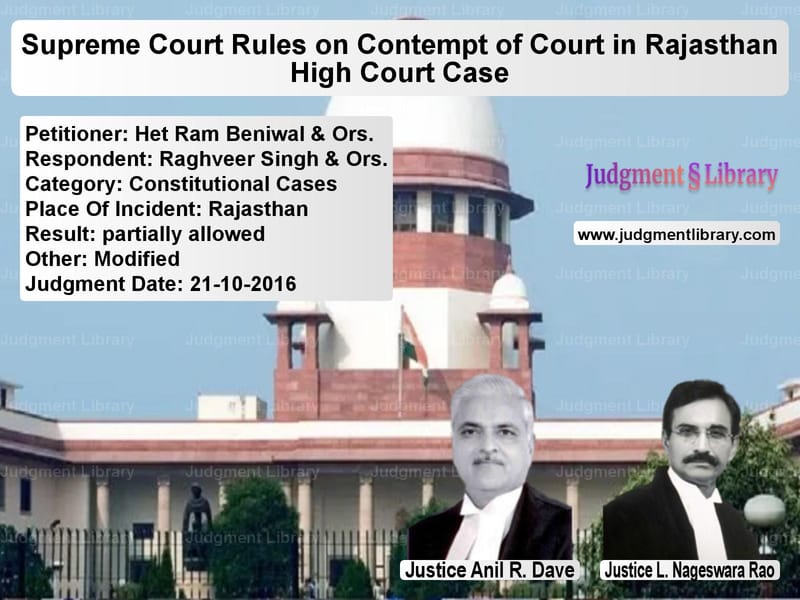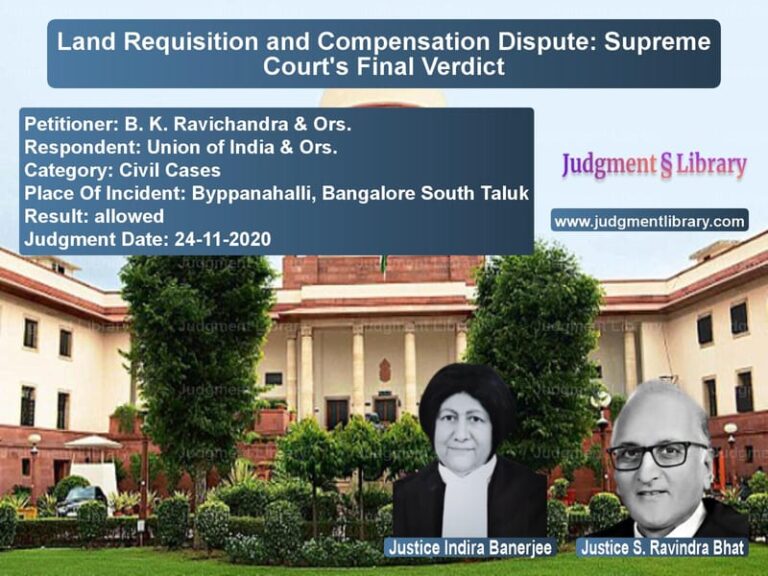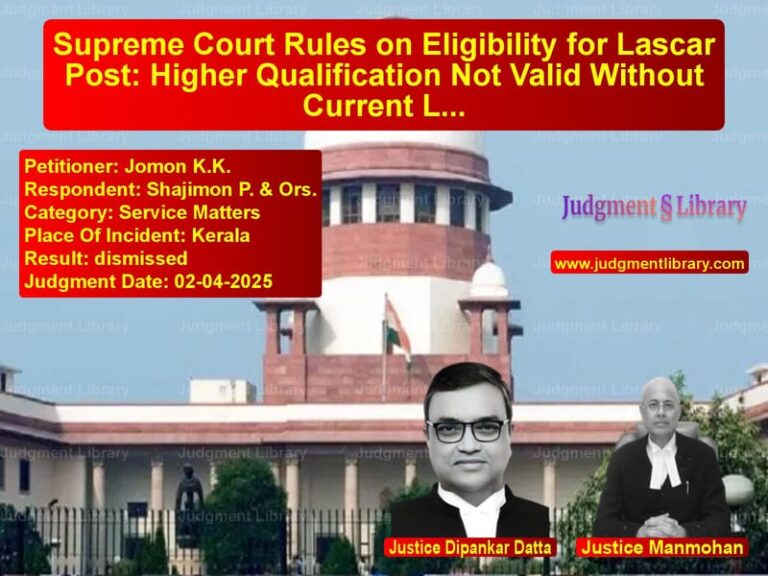Supreme Court Rules on Contempt of Court in Rajasthan High Court Case
The case of Het Ram Beniwal & Ors. vs. Raghveer Singh & Ors. revolves around allegations of contempt of court against the appellants, who made public statements accusing the Rajasthan High Court of bias and corruption. The Supreme Court had to determine whether their statements amounted to criminal contempt and if their subsequent apology was sufficient to mitigate punishment.
Background of the Case
The appellants were found guilty of contempt by the Rajasthan High Court and sentenced to two months of simple imprisonment along with a fine of ₹2,000 each. The contempt charges arose from a public speech they made on February 23, 2001, during a protest against anticipatory bail granted to certain accused in a murder case.
The speech, reported in the newspaper Lok Sammat, included statements that accused the judiciary of favoritism and bias towards the rich. The Rajasthan High Court took suo motu cognizance of these remarks and initiated contempt proceedings.
Legal Issues Raised
- Whether the statements made by the appellants amounted to criminal contempt under the Contempt of Courts Act, 1971.
- Whether the criticism of judicial decisions and the judiciary falls under the right to free speech.
- Whether the apology tendered by the appellants was bona fide and sufficient to mitigate their sentence.
Arguments by the Appellants
The appellants argued:
- Their statements were made in the context of an emotional reaction to the murder of their party leader.
- Their remarks were directed at the authorities and police rather than the judiciary.
- Fair criticism of the judiciary should not be construed as contempt.
- They were engaged in a political protest, and their words should be viewed in that context.
- They had tendered an apology, which should be considered as a mitigating factor.
Arguments by the Respondents
The respondents, represented by the Advocate General of Rajasthan, argued:
- The statements were a direct attack on the integrity of the judiciary.
- The comments accused the High Court of corruption and bias, thereby undermining public confidence in the judicial system.
- The apology was not unconditional and was made only to escape punishment.
- The accused had continued to make similar allegations in subsequent press conferences.
Supreme Court’s Judgment
The Supreme Court upheld the conviction of the appellants for criminal contempt but modified their sentence to a fine of ₹2,000 each instead of imprisonment.
1. Statements Amount to Criminal Contempt
The Court ruled that the statements made by the appellants scandalized the judiciary and lowered the authority of the court. It stated:
“Vilification of judges leads to the destruction of the system of administration of justice.”
2. Public Criticism Cannot Be a Defense
The Court emphasized that while fair criticism of judicial decisions is permitted, baseless allegations of bias and corruption cannot be tolerated. It stated:
“Freedom of speech does not include the right to defame judges and bring the judiciary into disrepute.”
3. Apology Was Not Bona Fide
The Court rejected the appellants’ apology, noting that it was made only to escape punishment rather than expressing genuine remorse.
4. Sentence Reduced to a Fine
Considering that the statements were made in 2001 and that the case had been pending for over a decade, the Court reduced the punishment to a fine of ₹2,000 each instead of imprisonment.
Key Takeaways
- Judges can be criticized, but baseless allegations amount to contempt. The ruling draws a line between legitimate criticism and contemptuous statements.
- Public statements against the judiciary carry serious consequences. Politicians and activists must be cautious while making allegations against the judiciary.
- An apology must be genuine. The Supreme Court emphasized that apologies made merely to avoid punishment would not be accepted.
- Criminal contempt laws are meant to uphold judicial dignity. The Court reinforced the principle that contempt proceedings exist to protect the administration of justice, not to shield individual judges from criticism.
Conclusion
The Supreme Court’s ruling in Het Ram Beniwal vs. Raghveer Singh sets an important precedent on the limits of free speech in criticizing the judiciary. While it acknowledges the right to fair criticism, it reaffirms that making unfounded allegations against the courts can attract contempt charges. This judgment reinforces the importance of maintaining public confidence in the judiciary while balancing the right to free expression.
Don’t miss out on the full details! Download the complete judgment in PDF format below and gain valuable insights instantly!
Download Judgment: Het Ram Beniwal & Or vs Raghveer Singh & Ors Supreme Court of India Judgment Dated 21-10-2016.pdf
Direct Downlaod Judgment: Direct downlaod this Judgment
See all petitions in Contempt Of Court cases
See all petitions in Fundamental Rights
See all petitions in Public Interest Litigation
See all petitions in Judgment by Anil R. Dave
See all petitions in Judgment by L. Nageswara Rao
See all petitions in partially allowed
See all petitions in Modified
See all petitions in supreme court of India judgments October 2016
See all petitions in 2016 judgments
See all posts in Constitutional Cases Category
See all allowed petitions in Constitutional Cases Category
See all Dismissed petitions in Constitutional Cases Category
See all partially allowed petitions in Constitutional Cases Category







